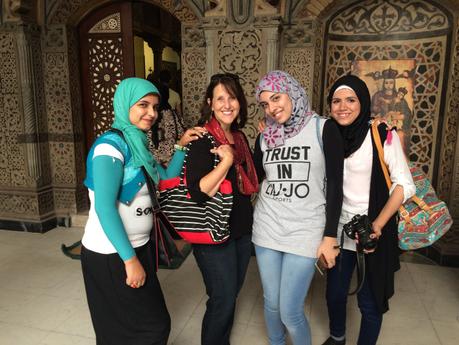
When I first began dating my husband, I would joke that I dated him and 30 Iranians. Cliff had hundreds of friends and most of them were international students at the university he was attending.
During those initial dates we would go to underground Marxist events, Nowruz parties, or sumptuous Wednesday night dinners of kebabs, pilau, torshi, and tea served in special glasses with sugar cubes - all with Iranians. He counted them among his best friends. Through our courtship and then marriage they became my friends as well, some of them young men; others whole families. I became convinced that God created Iranian women first and used up so much beauty that there wasn't much left for the rest of us. Bad theology? Maybe. Truth about their beauty? Absolutely.
It was during the Iran Hostage Crisis that my husband befriended these students and families. In a recent conversation one of his friends admitted that several of them thought he may be with the CIA. Who else asks that many questions?
Iran was not popular with the United States at the time. Three decades have gone by and not much has changed.
The number of countries that the United States considers dangerous has only increased during the past three decades. Different administrations have made a variety of statements and decisions about who is safe and whether they meet the litmus test of coming to this country.
During the same period of time, our friendships with people from these countries has only increased. In the last 7 years, we have had the privilege of traveling to Iraq, Jordan, Lebanon, Turkey, Iran, and Pakistan, We have also formed friendships in Cambridge with people from Iran, Turkey, Palestine, Israel, Syria, Algeria, Somalia, and so many more. Two years ago, we were able to introduce a young Syrian family to a young Israeli family at a Thanksgiving gathering. Watching them talk and connect was incredible. Their former views of each other's respective countries was through the barrel of a gun, not over tea and pumpkin pie.
"People have friends; Governments have interests" is a quote that I've heard many times. Living in the United States affords many of us unique opportunities to form friendships with people who are from countries considered dangerous, countries that are not counted as 'friends of the United States'. Because we are not our governments. Our decisions on who to love, who to trust, and who to befriend are not dictated by who or what our government does; by who our government does or does not deem 'safe'.
Too many times we confuse the two. Subconsciously our attitude becomes: If the United States Government and the mainstream media sources do not trust a country, then we can't trust people from that same country. If they are on bad terms we must be on bad terms.
My husband and I are not unique in having Muslims as some of our best friends. We know many Christians who claim the same. And we are among many who believe friendship and dialogue trump government interests and activity every time. As I've seen articles and been in conversations there are times when I fear some Christians in the west allow government policies and opinions to dictate their friendships; other times when media sources control their hearts and minds. I would suggest that this is misplaced loyalty creating a poverty of thought and spirit preventing us from befriending and reaching out to those who God has placed around us.
From Cambridge, Massachusetts to Tehran, Iran, the last few years have given us uncountable opportunities for meaningful interactions, because people are not governments.
"If we leave it to the mainstream, corporate media to form our conception and understanding of the surrounding world, the entire universe will be a gloomy, failing and disappointing entity in which no sign of hope and dynamism can be found."*
There's more to say on this topic, but I want to open it up to you. Wherever you live, how does the government and media affect how you view people? Who you will or won't let into your life? Do you agree with the quote "People have friends; governments have interests?" Why or why not?
*Quote from Kourosh Ziabari - an award-winning Iranian journalist, media correspondent and activist
Note: This post was revised from another written in 2014

